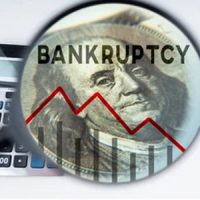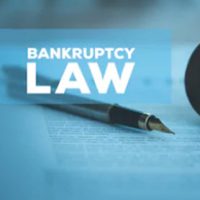Category Archives: Bankruptcy

What Will Disqualify You from a Security Clearance?
Contrary to popular myth, filing bankruptcy doesn’t disqualify you from a security clearance. Such bankruptcy filing discrimination is illegal under federal law. In fact, the opposite is usually true. Although the underlying debt problems that force most people to file bankruptcy could disqualify you from a security clearance, filing bankruptcy often convinces authorities that… Read More »

Do I Lose My Car if I File for Bankruptcy?
No, in most cases. The Bankruptcy Code, which gives honest yet unfortunate debtors a fresh start, recognizes that people need cars to work, go to school, run essential errands, and otherwise live from day to day. Illinois’ bankruptcy exemptions recognize this fact as well. So, in most cases, you don’t lose your car if… Read More »

Are Student Loans Being Forgiven in Bankruptcies?
Yes, student loans are being forgiven in bankruptcies, partially because, in 2024, former President Joe Biden undid a mistake he made some twenty years earlier. In 2005, then-Senator Biden led the charge to end some of the last bankruptcy protections for student loan debtors, primarily those who had private student loan debt related to… Read More »

What’s Better, an IRS Installment Plan or Bankruptcy?
Before 9/11, the IRS Commissioner was the real-life equivalent of Darth Vader. But since then, the IRS has rolled out initiatives like the Fresh Start Plan. The IRS decided that it wanted delinquent taxpayers to pay what they owe more than it wanted them to get in trouble. The Fresh Start Plan made installment… Read More »

Top Five Written Property Exemptions in Illinois
Property exemptions prevent the trustee (person who oversees a bankruptcy for a judge) from liquidating assets to pay debts. Quite simply, without these exemptions, debtors don’t get a fresh start, which is the purpose of this proceeding. Asset protection, which is only available to bankruptcy debtors in most cases, is only one benefit of… Read More »

What is the Success Rate of Chapter 13?
If debtors make the proper effort, Chapter 13’s success rate is 100 percent. Everyone who puts forth the proper effort, as outlined below, gets a fresh start. In a successful Chapter 13, distressed debtors erase secured debt delinquency, like past-due home mortgage payments. This process also discharges most unsecured debts, like credit card debts…. Read More »

What is the 2-3-240 Rule in Bankruptcy?
This rule determines the dischargeability of back taxes in a bankruptcy matter. Back taxes are priority unsecured debts which are only dischargeable in limited situations. Student loans and most FSOs (family support obligations, such as child support) are also priority unsecured debts. “Discharge” means the judge eliminates the legal requirement to pay the debt…. Read More »

Are Chapter 7 and Chapter 13 Different?
In some ways, these two kinds of consumer bankruptcy are significantly different. In other ways, they’re exactly the same. In a nutshell, these two matters end the same way. All filers receive a fresh financial start. The main differences between Chapter 7 and Chapter 13 lie in the nuts and bolts of each procedure…. Read More »

How to Get a 700 Credit Score After Chapter 7
The tips discussed in this post should help most former Chapter 7 debtors reach a 700 credit score, which is in the “good risk” range, within four years of discharge. This seemingly impossible goal is possible largely because, contrary to popular myth, a bankruptcy filing does not “ruin” a credit score. Since bankruptcy simply… Read More »

What is the Student Borrower Bankruptcy Relief Act of 2024?
This proposed legislation would make student loans dischargeable in bankruptcy just like any other unsecured debt. But it faces an uncertain future. On September 30th, House Judiciary Committee Ranking Member Jerrold Nadler and Subcommittee on Administrative Law, Regulatory Reform, and Antitrust Ranking Member Lou Correa re-introduced the Student Borrower Bankruptcy Relief Act of 2024…. Read More »


